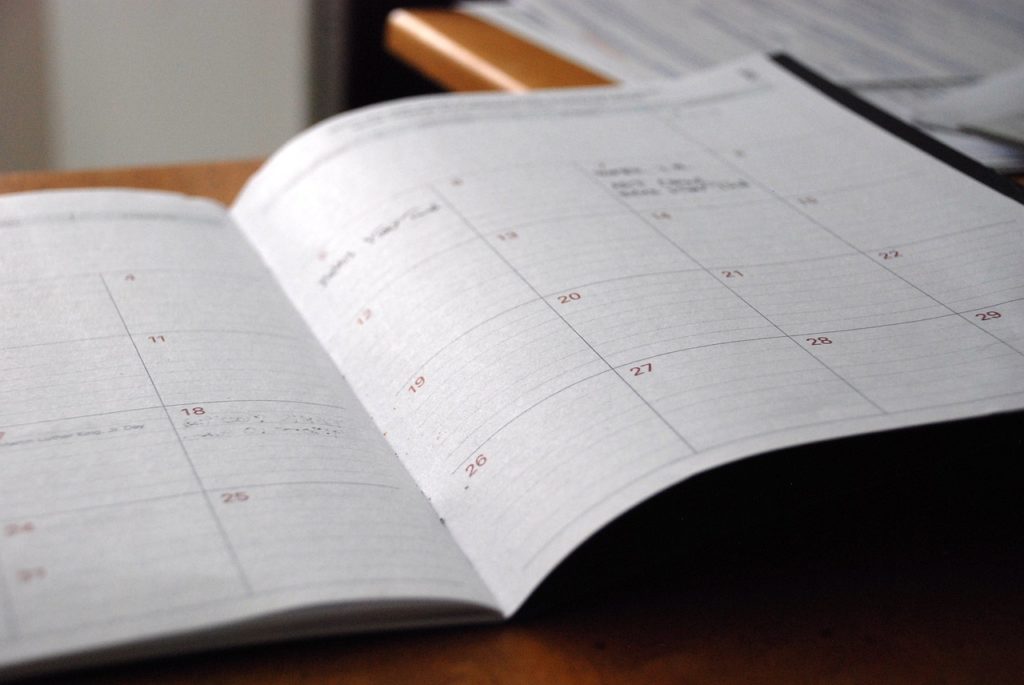How to choose a homeschool planner

Setting a homeschool schedule is one of the most challenging aspects of planning to teach your own children. For many parents, having a homeschool planner is an effective way to keep track of their homeschooling days, from blocking out a few hours for mathematical instruction to planning for weekly field trips.
“A planner is a great idea,” Brian D. Ray, president of the National Home Education Research Institute (NHERI) and editor‑in‑chief of the peer-reviewed journal Home School Researcher. “Whether you hate planning or not, it’s a good idea.”
Besides keeping you organized on a daily or weekly basis, homeschool planners could also be helpful in the (albeit, unlikely — homeschooling is legal in every state, after all) event of a government inspection.
“Every now and then, even though homeschooling has grown tremendously, some problem arises with a [public] school official,” Ray said. “It’s a really good idea to have at least a weekly planner with a few notes you’ve taken. It doesn’t mean you have to be overly crazy, but some recordkeeping is very helpful.”
Marci Goodwin, blogger at The Homeschool Scientist, said that having a planner was effective in eliminating what she considered to be the most challenging part of setting a schedule for homeschooling: the distractions, for both her and her kids.
“That’s why a planner was so good for me personally, and so [my kids] could see this is school: don’t ask to go to the park, don’t ask to go on a field trip because this is school time,” she said.
Having a planner will also help you prepare transcripts for your child if they decide they want to apply to college.
“That becomes more important as your child gets older,” Ray explained. “It’s really good to have some planners available to help you think ahead of time or in retrospect to come up with a transcript of what he did or accomplished. If you don’t, it’s very challenging. Colleges and university admissions officers want to believe you, but if you don’t have anything solid, they’re going to doubt you.”
Goodwin agreed that planners — particularly digital planners — are extra helpful in the later stages of your child’s education.
“In high school, [my daughter] went to an online planner with Homeschool Manager,” Goodwin said. “We could both put in the schedule for the week. I can put grades in, and it keeps all your grades and your high school transcripts.”
When it comes to choosing a planner for homeschooling parents, Ray recommended keeping it simple, but also keeping digital records.
“I would just go with a nice, big 8×11 format with old fashioned paper, and keep it in a safe place,” Ray said. “Maybe now in the digital age, you should take a few shots once in a while and keep a digital backup every now and then.”
Homeschooling parents may also want to pick a planner for their children. As with most things in homeschooling, the ideal planner will depend on your child.
“I knew how my kids worked,” Goodwin laughed. “My son liked everything regimented. His planners were very much time oriented and had a lot of checklists in them. My daughter is more of a free spirit, so her planner had places to take notes, draw pictures and a journaling page. For some reason when it was structured, she couldn’t follow along.”
Goodwin even considered her personal learning style when picking her planner.
“Mine was kind of like my son’s,” Goodwin said. “I like to schedule in blocks of time. We all had something different to all our different personalities.”
While there are a wealth of planner available for purchase at office supply stores, Goodwin also recommended looking online for printable planners. She recommended sites like A Plan In Place, which have planners designed specifically for homeschooling.
“There are so many awesome ones out there that you can buy or print out,” Goodwin said.
